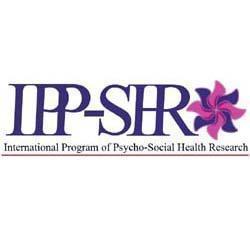Wounds can leave deep cuts on the mind, says researcher
Published on 23 December, 2009
The overwhelming demands of malignant wounds can have ongoing effects on patients, carers and nurses, yet these psycho-social effects have been almost totally overlooked.
That is according to Bundaberg-based CQUniversity doctoral student Susan Alexander whose article on 'Malignant fungating wounds: key symptoms and psychosocial issues' has been published in the Journal of Wound Care. [This article is 1 of a series of 4 published in the Journal of Wound Care reviewing the literature on the epidemiology, aetiology, assessment and management of malignant wounds, with a focus on the previously neglected psychosocial issues.]

Susan Alexander
Susan's study has also been presented as a PODCAST (LINK here) as part of the IPP-SHR (International Program of Psycho-Social Health Research) series*, based on her interview with Hamish Holewa.
"People living with malignant wounds, and those who care for them in their final months of life, are often deeply affected by the overwhelming demands of wound care," Susan says.
"Some patients are so embarrassed by their wound's odour and appearance, they avoid contact with friends, and some delay seeking medical help.
"Carers are often left to cope on their own, their lives dominated by the demands of wound dressing, showering and laundry."
Susan believes that many carers experience post-traumatic stress disorder after their loved ones have died.
She says the wounds also serve as a constant reminder to patients that they are dying. Her research shows nurses can feel frustrated, inadequate, guilty and angry that they were not able to care for their patients to the standard they felt was required.
"Knowing about their patient's social isolation, and experiencing traumatic situations during treatment, can traumatise not only the nurse involved, but whole teams of community nurses."
Susan says there's some urgency for the psycho-social effects of malignant wounds to be addressed in patient management plans.
 ----------------------------------
----------------------------------
* IPP-SHR Podcasts explore the latest international advancements in psycho-social health research. Podcasts are released every Friday 9am EST. IPP-SHR podcasts has produced more than 75 podcasts and has over 3000 subscribers.
IPP-SHR is a collaborative initiative jointly funded by the National Health and Medical Research Council and CQUniversity, Australia. The program contributes towards the development of psycho-social services which assist people to deal with the many challenges associated with serious physical and/or mental illness.

